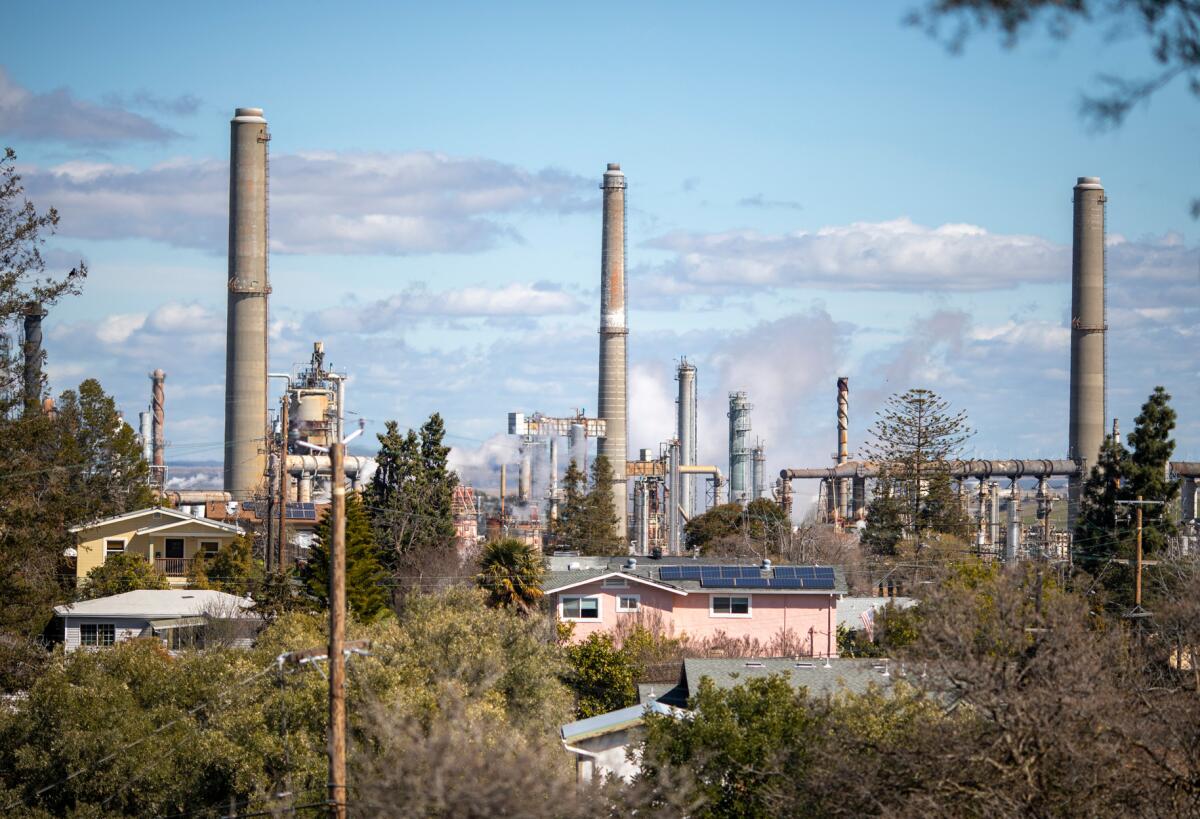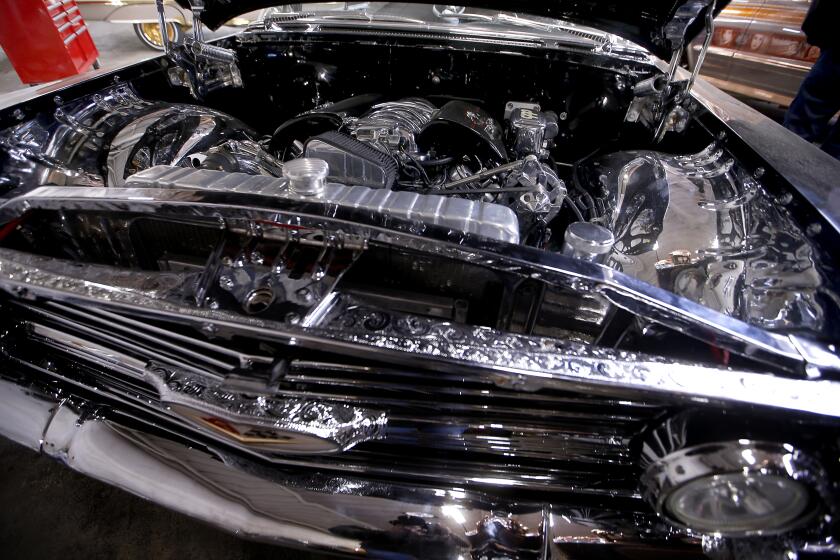Bay Area refinery fallout does not pose significant health risk, authorities say

- Share via
Bay Area public health authorities announced Thursday that heavy metals released by a refinery in November do not pose a significant risk to gardeners or residents in the city of Martinez, according to new laboratory testing.
On Nov. 24 and 25, Martinez Refining Co., an 880-acre refinery on the northern edge of the city, released up to 24 tons of spent catalyst, powdery white dust filled with chemicals used to break crude oil into finished petroleum products. The substance blanketed cars and homes throughout the city’s downtown.
Last month, Contra Costa County hired TRI Companies Inc., a Connecticut engineering firm, to collect soil samples at 14 sites across Contra Costa and Solano counties. Jenny Phillips, a TRI toxicologist, concluded none of the samples contained metals higher than background levels, though testing did find some places with elevated lead and arsenic.
A judge ordered the state to suspend any project activity and prepare a ‘legally adequate’ environmental impact report ‘if it chooses to proceed.’
Based on the soil analysis, Contra Costa health officer Dr. Ori Tzvieli lifted a public health advisory recommending that residents of Martinez not eat foods grown in soil that may have been contaminated by the release.
“Now that we have these results, I personally would have no issue eating fruits and vegetables grown in ground soil from one of the affected areas,” Tzvieli said in a statement Thursday.
For many residents, the soil testing — released six months after the incident — helped to ease some of the long-lasting concerns about health risks associated with the spent catalyst. Others, however, argued that the county’s plodding response to a hazardous materials release exposed glaring flaws in government procedures and warrants reforms.
“One hundred ninety-four days after the release, we are now at the point where we’re telling people it’s OK to eat different fruits and vegetables,” said Tony Semenza, a resident and member of the county oversight committee. “The process is flawed. This should have been done much quicker.”
County officials, for their part, promised there would be consequences for Martinez Refining, which did not immediately notify the proper authorities after the hazardous materials release, prompting regulators to find out through complaints from residents.
“These results do not excuse the Martinez Refining Co. for the lack of notification at the onset of this incident,” said Matt Kaufmann, deputy health director. “While this does bring some relief in terms of long-term health impacts to our community … the lack of timely notification negated our ability as health officials to protect our community, including those most vulnerable, namely the medically compromised, the elderly and the children within our community.”
California air regulators have voted to phase out the use of a highly toxic metal that’s commonly used to restore classic cars and protect aviation parts.
The county health department has referred two violations to the Contra Costa County district attorney’s office — one for failure to notify the proper authorities of a hazardous materials release and one for illicit discharges into the county stormwater system.
The FBI and thje U.S. Environmental Protection Agency have also launched a joint investigation into the Martinez Refining release, speaking with residents who may have been exposed to the toxic fallout.
“They have not filled us in on details of that investigation,” Kaufmann said. “We’re really not privy to what they’re looking at or who they’re talking to.”
An FBI spokesperson confirmed that the investigation is ongoing but declined to comment further.









